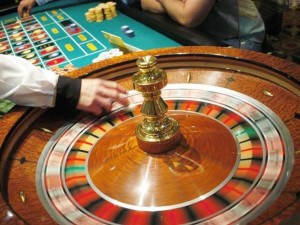 Gambling Addiction
Gambling Addiction
Many people like a flutter now and again, and some can indulge in gambling without consequence. For others gambling can become a serious problem in a short space of time. Problem gambling can strain relationships, interfere with work, and lead to mental health problems and severe financial worries. Do you think you have a gambling problem? Perhaps you know someone who might be suffering from this debilitating addiction? Compulsive gambling is a problem that can affect anyone, regardless of their income, age, sex, race or social status.You may think you can’t stop but, with the right help, you can overcome a gambling problem or addiction and regain control of your life. The first step is recognizing and acknowledging the problem.
What is a gambling addiction?
An addiction is characterized by a compulsion or urge to do something, despite being aware of the negative consequences of your actions and wanting to stop. Gambling can stimulate the brain’s reward system much like drugs such as alcohol can, leading to addiction. Those who experience gambling addiction still continue to gamble despite negative financial, legal and social consequences. Gambling addiction, also known as compulsive gambling, is a type of impulse-control disorder. Compulsive gamblers can’t control the impulse to gamble, even when they know their gambling is hurting themselves or their loved ones. Despite a desire to quit gambling, many compulsive gamblers are unable to control their impulsive behaviours without help.
How do I know if I have a gambling addiction?
It is important that people are able to ask for help if they have an addiction, rather than feeling embarrassed or ashamed about it. If you answer yes to the following questions, it may be possible that you have an addiction to gambling
- Do you feel the need to be secretive about your gambling?
- Do you lie to family and friends about how much you gamble?
- Do you feel guilt or remorse after gambling?
- Do you have trouble controlling your gambling? Once you start gambling, can you walk away? Or are you compelled to gamble until you’ve spent the last of your money in a desperate bid to re-coup your losses?
- Do you prioritise gambling over other activities? Such as spending time with your family and friends?
- Are you spending more time gambling than you used to?
- Have you borrowed money to gamble?
- Are family and friends concerned about your gambling?
- Do you have outstanding debts and continue to gamble? A red flag is when you are getting more and more desperate to win back the money you have lost. You may gamble until you have spent the last of your money. You may feel compelled to borrow, sell, or even steal things for gambling money. It’s a vicious cycle. Chasing a big win you may feel compelled to gamble money that you don’t have in a desperate attempt to win money back.
When to seek help.
Compulsive gambling is a serious condition that can have profound and long-lasting consequences for your life. Relationships with family and friends can become unbearably strained. Compulsive gamblers often face severe financial problems as a result of their gambling, including serious debt and bankruptcy. Gambling addicts are also more likely to go to prison as a result of criminal activity. This is almost entirely theft and fraud as a means to fund their gambling addiction. Rates of depression and attempted suicide among gambling addicts are around double the national average. There’s also a link between gambling and alcohol abuse. Because denial is almost always a characteristic of compulsive or addictive behavior, it may be difficult for you to recognize that you have a problem.
Gambling is out of control if:
- You have lied to family or friends about your gambling.
- You have felt guilt or remorse after gambling, but been unable to stop.
- It’s affecting your relationships, finances, or work or school life.
- You have resorted to criminal activity (theft or fraud) to fund your gambling
- You prioritize gambling over spending time with family and friends.
- You have missed work in order to gamble.
- You have borrowed money or gone into debt to finance your gambling.
Your gambling addiction doesn’t have to take over your life. Understanding how to overcome your addiction to gambling can lead you down a life free of addiction. “ABADIS TREATMENT” center offers……………………………………. JJJ
I read a lot of interesting posts here. Probably you spend a lot of time writing, i know how to save
you a lot of work, there is an online tool that creates high quality, google friendly posts in minutes, just type in google – laranitas
free content source
43ljc4